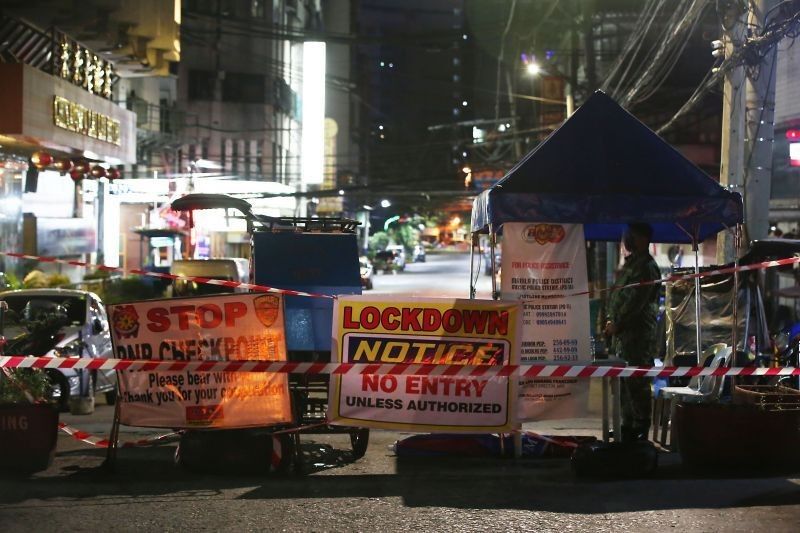'Band-aid solutions' won't control virus spread, health workers say on 'NCR Plus' curbs

MANILA, Philippines — A group of medical workers is calling for concrete interventions to address the surge in COVID-19 cases in the country, saying the new restrictions in the "NCR Plus" area will not work to stop the spread.
Members of the 160-strong Healthcare Professionals Alliance Against COVID-19 said government should take the two weeks' worth of curbs in Metro Manila and the provinces od Rizal, Bulacan, Cavite and Laguna to strengthen healthcare systems.
"We did not reach this current surge of almost 8,000 a day, overnight," HPAAC said in a March 22 statement. "The nature of the pandemic exposed our previously weak health and social support systems."
The group's call came as several hospitals in the capital region began reporting full capacity at their COVID-19 wards, with daily additional infections reaching all-time highs in recent days. On Monday, Philippine Hospital Association chief Jaime Almora also sought staff reinforcements with medical facilities now at "critical level" and workers already exhausted.
FROM 2020: Medical frontliners call for ‘timeout’
And while government has ordered hospitals within the 'NCR Plus' to increase bed capacity for COVID-19 patients, it was mum on addressing the possibility of the medical workforce being overwhelmed.
"We urge our leaders in government, especially our economic managers, to respect the primacy of health objectives in fighting the pandemic," HPAAC added. "This is the reality: containing the virus through scientific approaches will pave the way for economic recovery."
Suggestions from healthcare workers
HPAAC, in their reommendations, said the referral system for the infected should be improved, to determine who can stay at home for monitoring or who should be brought to hospitals for medical attention.
It said too that there is a need for better data collection and sharing between local governments and the private sector to track better those who may have been exposed.
"Our contact tracing system is fragmented, making it difficult, if not impossible, to track the movement of the virus," the group said. "This will allow us to get ahead of developing COVID-19 hotspots. This urgent action should have been done last year."
HPAAC added that ventilation should be intensified in workplaces, transportation and commercial establishments, or their "Apat Dapat" campaign: Air circulation and ventilation, physical distancing of one meter or more, always use face mask and face shield, and thirty minutes interactions or less.
On vaccine rollout, help for affected
Healthcare professionals said government should clarify the process on how the private sector can "legitimately engage, including their extent and conditionalities" in vaccination efforts.
This came on top of of claims by some senators that there is a proposal barring manufacturers of tobacco, soda, and other "unhealthy" products from importing the jabs. Malacanang has since said that companies can purchase their own doses, but will still be through a tripartite agreement with the drugmaker and the national government.
"Furthermore, government officials must be prudent and accountable in communicating vaccine information to the public, ensuring alignment to evidence and national policy," HPAAC added.
The group also appealed for social protection for those who may be affected by the new restrictions, particularly workers.
Members said "it is the government's duty to protect and give relief to the vulnerable sectors of our population," a call that the administration has rejected, saying there is no need with work still allowed to go on.
"The public sees the differences in government response across countries, and their effect on economies," HPAAC said. "They are already holding this government accountable. Let us not waste any more time."
- Latest
- Trending

































